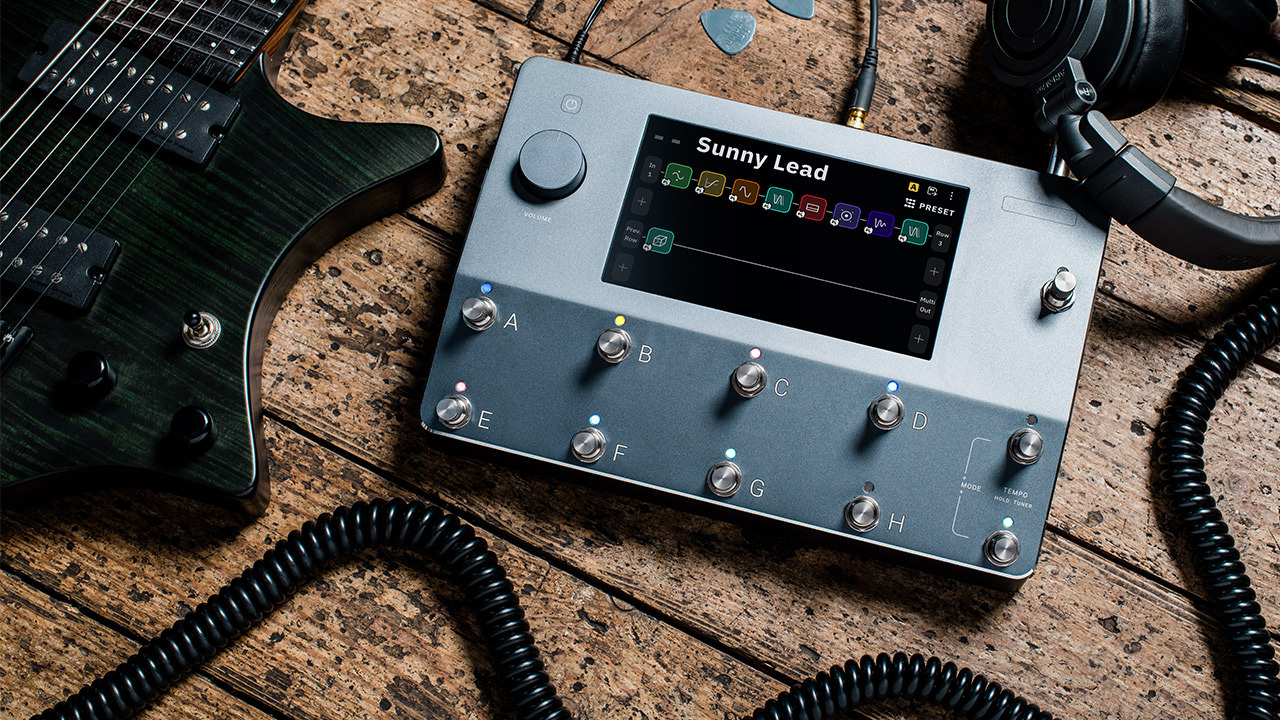
I was just programming some sounds in my Quad Cortex for an upcoming workshop and was thinking about how much things have changed since my first amplifier – an awful-sounding Gorilla. I was buying pedals and trying to get it sounding better, but it was a lost cause. I eventually saved up and got a Marshall stack, my tone quest began and the money pit was dug.
“Kids these days don’t know how lucky they got it,” I hear myself saying, and feeling old beyond my years. But it’s true. When I grew up, amps that sounded good were expensive – and heavy, and loud. These days you can pull a pretty good sound out of an iPad. Whaaaat?
So I was wondering where all this is going? I still buy pedals, but not so often any more. Only when ‘twiddling the knobs’ is a big part of the experience, the real-time interaction. And fuzz pedals, because the virtual ones are still not quite there for me.
But how long will it be before everyone does stuff in the box, and people using real amplifiers will be those rare aficionados that listen to vinyl and drive a classic car? And what will that mean for the seekers of great tone among us? Well, I have a feeling that the ‘tone stars’ of tomorrow are going to be the ones who can do the most creative programming – in some ways it’s there already.
Michael Britt (legendary amp profiler) is an incredible tone star that I rate highly. So I’d probably be much more interested in an amazing new profile for my Kemper than a new pedal. Of course tone is subjective and we all like different things, but there’s still good and bad tone, right?
Well, I’m not so sure any more. There are guitarists who have incredible tone – Stevie Ray Vaughan, David Gilmour, Mark Knopfler – sounds that many guitarists would want to capture if they could. You’d have to spend thousands on all the best gear to get tone like that – right? Right? But Mark Knopfler used a Kemper on his last tour, and that’s a guy who knows about tone. If it’s good enough for him, etc...
As Artificial Intelligence develops, I don’t doubt for a second that it will take over tone creation to some extent. Imagine the possibilities – being able to blend the sounds of multiple amps, replicate the sounds of the greatest guitarists of all time, and take it all to a new place entirely.
Nothing would be off the table. The quest will no longer be about buying gear. Creativity will take a new path – likely one that we can’t even imagine yet. What can you dream up and ask the AI to make for you? How well can you describe it to the AI?
I asked myself this same question, and started to dream up sounds in my musical imagination. I surprised myself by realising that much of what I could dream up is already possible. It would just take time and effort and exploration. Can you imagine something that has never been heard before? Try it! Then try to make it now. Even if you don’t get there – it’s a fun way to spend a few hours and you might just find something special.
Music is always changing, and it should. New music should upset previous generations and challenge the norms. Older people shouldn’t like the music the youngsters like, as much as the music they grew up with. Nostalgia is special.
When the whole digital amps thing came along, I was super-sceptical. I’m an old-school guy who likes valves and vintage gear and rattles and noise. I didn’t want to believe they could be any good, and was glad when the first few units that came out didn’t sound amazing.
But a few years later I did some A/B tests with a Kemper in a studio and was sold. I couldn’t hear the difference. In fact, I guessed the Kemper was producing the better amp sounds more than half the time.
I’d bet the vast majority of tones we hear on recordings these days are some kind of modelled sound. I do still use real amps for creative projects, because I like the happy accidents and find it changes my vibe. But I did just try using a FRFR (Full Range, Flat Response) speaker with my Quad Cortex and it sounded great. So maybe I’ll be fully on the digital wagon soon.
But is there something else about vibe and mojo that gets lost in the digital domain? I think so. I just don’t know how to describe it or what it could be. But even if it’s in my imagination – a kind of placebo effect – if it makes a difference to how I play, then the difference is real. And that’s something I care about. So right now I’m exploring both sides of the tone universe. And these days it’s not like you have to choose one way or the other.
There’s no right or wrong here, just some food for thought. The future is going to sound good, no matter if you like it old or new. Happy tonehounding, my friends!







